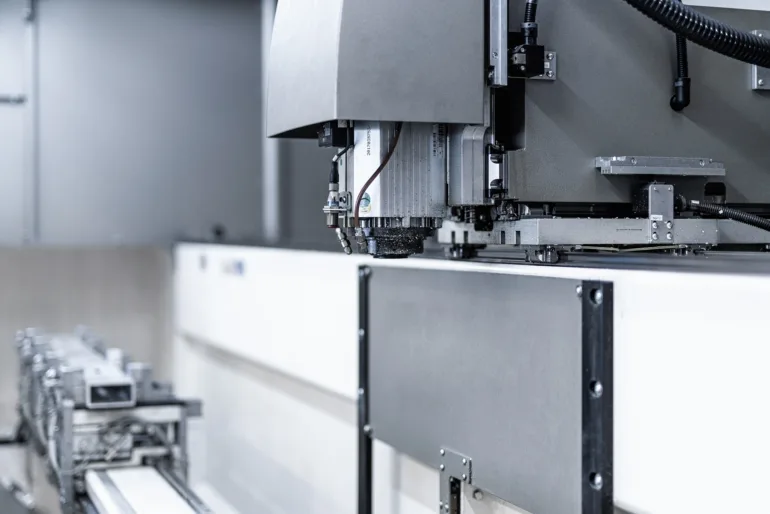TL;DR:
- The manufacturing industry is preparing for a technological revolution with the integration of AI in factories.
- AI-powered ChatGPT from OpenAI has increased interest in AI utilization in various sectors.
- At the Hanover Fair on industrial technology, the potential of AI in the manufacturing industry was a key focus.
- HPE has been working with Aleph Alpha, a German start-up, to demonstrate the capabilities of AI in the sector.
- AI in the manufacturing industry eliminates the need for expert technicians to solve technical problems and guides repairs.
- Aleph Alpha has the unique advantage of keeping customer data in Europe.
- Siemens, in partnership with Microsoft, is launching a new version of the Teams messaging platform featuring ChatGPT to assist workers and identify defects in products.
- Microsoft and Siemens deny that AI will lead to job losses and claim it will improve efficiency.
- AI could also alleviate the shortage of skilled workers, particularly in Germany.
- The CEO of Aleph Alpha acknowledges that AI will bring significant changes to the job market but believes it will not necessarily lead to job loss and may provide a competitive advantage to companies that adopt it.
Main AI News:
The Manufacturing Industry is poised for a technological revolution with the integration of Artificial Intelligence. The recent launch of AI-powered ChatGPT by OpenAI has sparked an increased interest in the utilization of AI across various sectors. At the recent Hanover Fair on industrial technology in Germany, the potential of AI in the manufacturing industry was a key focus.
An HPE employee, armed with a tablet, demonstrated the capabilities of AI in the sector by chatting with an AI-powered virtual assistant, instructing it to operate a robot’s arm. Thomas Meier, a data analyst from HPE, highlighted the benefits of AI in the manufacturing industry, explaining that it eliminates the need for expert technicians to be on-site to solve technical problems. Instead, the AI takes charge, guiding the repairs.
HPE has been working with Aleph Alpha, a German start-up and a leading European rival to OpenAI, for the past year. The innovation allows factory workers to communicate with the AI, sending photographs of machinery to detect problems or check installation accuracy. Although Aleph Alpha’s resources are modest compared to OpenAI, which has received significant funding from Microsoft, the German start-up has a unique advantage – it will keep customer data within Europe.
Improving Productivity and Easing Workforce Shortages
Aleph Alpha’s CEO, Jonas Andrulis, believes that Europe’s role in the AI revolution must go beyond regulation. At the Hanover fair, Siemens also showcased an application aimed at boosting factory performance. In partnership with Microsoft, the German industrial conglomerate is set to launch a new version of the Teams messaging platform featuring ChatGPT to assist workers and identify defects in products.
Microsoft and Siemens, who claim to be working with clients in the automotive and aerospace industries, dismiss the notion that AI will lead to job losses. According to Anthony Hemmelgarn, CEO of Siemens Digital Industries Software, AI will improve efficiency by addressing 70% of issues that are currently not recorded. He added that AI is not replacing human workers but rather performing tasks that were previously not being done.
AI could also alleviate the shortage of skilled workers, particularly in Germany, where 58% of manufacturers report workforce shortages, according to a recent study. Jochen Koeckler, head of the Hanover fair organizers, echoed this sentiment.
Andrulis acknowledges that AI will bring significant changes to the job market, but he also seeks to reassure that it will not necessarily lead to job loss. Instead, he suggests that companies that adopt AI will gain a competitive advantage over those that don’t.
Conlcusion:
The integration of AI in the manufacturing industry presents significant opportunities for increased productivity and efficiency. The recent advancements in AI technology, such as ChatGPT from OpenAI and the collaboration between Siemens and Microsoft, demonstrate the potential for AI to assist workers and identify defects in products. Moreover, the utilization of AI in the manufacturing industry could alleviate the shortage of skilled workers, particularly in Germany.
For the market, this represents a clear shift towards the adoption of AI in the manufacturing industry, which could drive competitiveness and innovation. Companies that embrace this technology will be well-positioned to stay ahead of the curve and gain a competitive advantage over those that do not. As the use of AI in the manufacturing industry continues to grow, it will be essential for companies to keep pace with the latest advancements in order to reap the full benefits of this technology.

